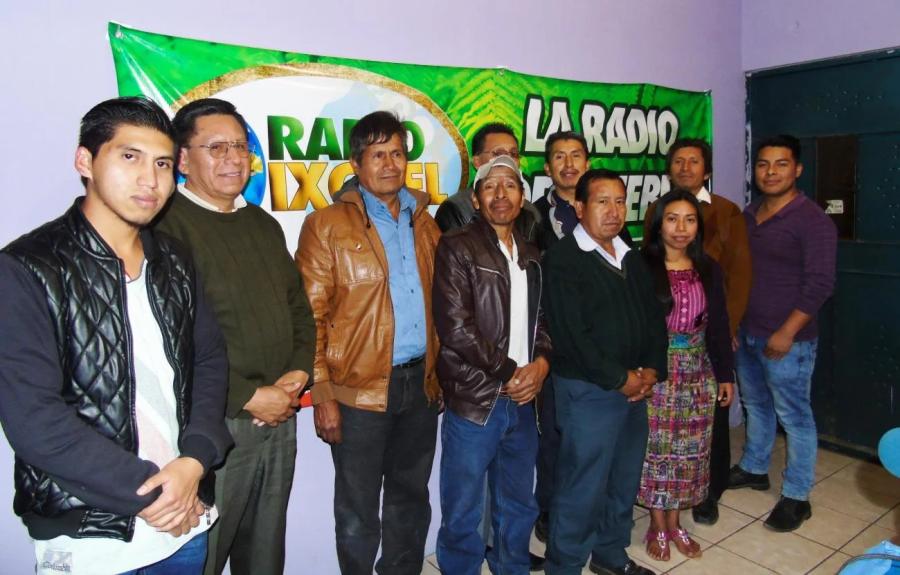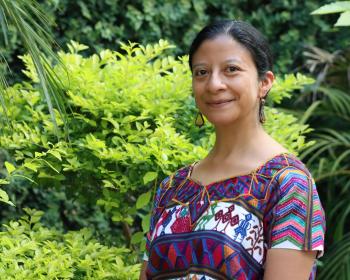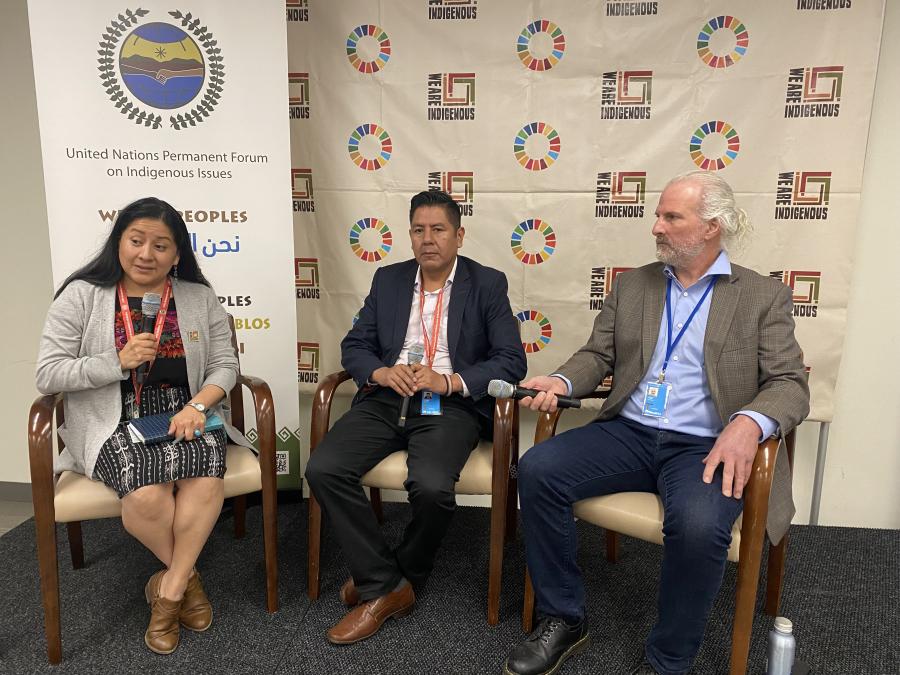



On November 20 and 21, 2015, Cultural Survival Executive Director Suzanne Benally visited three Indigenous community radio stations in Guatemala. After participating in several panels during the VII Continental Meeting of Indigenous Women of the Americas, Benally traveled to three Indigenous communities to learn about the efforts and initiatives they are undertaking in maintaining their community radios. Benally visited Radio Ixchel in Sumpango, Sacatepequez; Radio Swan Tinamit in Chichicastenango; and Radio Juventud in Solola.
The first stop was Radio Ixchel in Sumpango, Sacatepequez. This station has been serving its community for over 10 years and is a leader in the community radio movement in Guatemala. Benally's visit was a breath of hope for the radio volunteers, who shared their experiences and struggles as community journalists in Guatemala. Rigoberta Gonzalez explained the impact the radio has had on her life: “I moved to Sumpango many years ago with my husband, fleeing our community during the civil war in our country. For a very long time I couldn't speak of the atrocities we experienced. n opportunity was given to me to be part of the board of directors of the radio and I accepted, never imagining one day I will be able to have a space to talk about subjects that matter to me. It's been over five years of participation and the radio gave me back my voice. It gave me strength to reconcile my past and live my present.”
Radio Swan Tinamit in Chichicastenango was the second stop. This station has been in operation for over 10 years and is highly supported by its local Indigenous authorities. The radio was raided in May 2015, which resulted with one of its volunteers being imprisoned for almost a month. Carolina Morales, director of the Association for Community Development (ASDECO), the institution that oversees the radio, welcomed Benally and the other Cultural Survival staff members accompanying her. “It is an honor to meet another Indigenous sister, who despite her distant geographic location, is working to support the work of Indigenous community radios in Guatemala,” said Morales. “It assures our radio volunteers that we are not alone. fter the raid a few of our volunteers quit, fearing jail-time and public shaming. This visit shows us solidarity and gives us strength to continue our work,” she added.
The last visit was to Radio Juventud in Solola. This station was raided in December 2014 and was able to secure an unprecedented legal judgment against the Guatemalan Public Ministry, which by court order was instructed to return seized equipment. Olga Ajcalon, a long-time volunteer, and Santiago Ajcalon, the station’s founder, welcomed the Cultural Survival team to the station. Benally congratulated them on their efforts to win over the Guatemalan Public Ministry as well as the extraordinary work of Radio Juventud. “We deeply appreciate the visit and cannot thank Cultural Survival enough for their support and solidarity during these past months. In September 2015 we received another court order asking for Radio Juventud to return all equipment to the Public Ministry on demand of the Guatemalan Telecommunications Chamber, and we’ve struggle to navigate the judicial system, but with support and help from organizations like Cultural Survival we are fighting to maintain our right to access community radio in our own language and culture,” said Santiago Ajcalon. “I feel at ease with Suzanne Benally because she is an Indigenous woman like myself,” Olga Ajcalon said. ”I always admire strong Indigenous women leaders who fight to protect the rights of their communities. Radio Juventud is grateful for the visit and the solidarity.”
Benally was asked to greet each community on air through the radio in her own language (Navajo/Dine). Her message was one of gratitude for the warm welcome received at each radio and also of encouragement to each community to continue to support their community stations and learn about their rights. “I am very grateful for the opportunity to share and hear about each of these individuals experiences. It is one thing to read and hear about the struggle of Indigenous community radios in Guatemala but completely another to see it for myself. I want to come back and I want to make sure that others are hearing about this! It is important to unite and support our Indigenous brothers and sisters in Guatemala as they fight for something so basic that many of us that have the privilege of taking for granted: communication,” said Benally.



